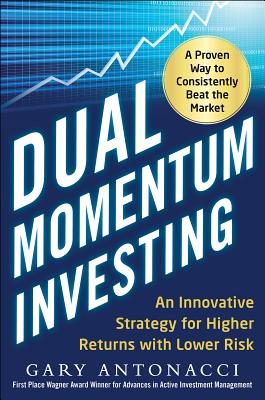The Psychology of Investing, 4/e (Paperback)
暫譯: 投資心理學,第4版(平裝本)
John R. Nofsinger
- 出版商: Prentice Hall
- 出版日期: 2010-02-26
- 售價: $666
- 語言: 英文
- 頁數: 144
- 裝訂: Paperback
- ISBN: 0136117031
- ISBN-13: 9780136117032
下單後立即進貨 (約5~7天)
相關主題
商品描述
<內容簡介>
The Psychology of Investing is the first text of its kind
to delve into the fascinating subject of how psychology affects investing. Its
unique coverage describes how investors actually behave, the reasons and causes
of that behavior, why the behavior hurts their wealth, and what they can do
about it.
The fourth edition addresses the current financial crisis, has
a new chapter on framing effects, and contains new evidence and ideas in every
chapter.
What really moves the market: Understanding the
psychological aspects. Traditional finance texts focus on developing
the tools that investors use for calculating risk and return. The Psychology of
Investing is one of the first texts to delve into how psychology affects
investing rather than solely focusing on traditional financial theory. This
text’s material, however, does not replace traditional investment textbooks but
complements them, helping students become better informed investors who
understand what motivates the market.
Keep learning consistent: Most of the chapters are organized in a
similar succession. This approach adheres to
following order:
- A psychological bias is described and illustrated with everyday behavior
- The effect of the bias on investment decisions is explained
- Academic studies are used to show why investors need to remedy the problem
NEW! Growing with the subject matter: Current and
fresh information. Because data on investor psychology is rapidly
increasing, the fourth edition contains many new additions to keep students
up-to-date.
- The new Chapter 5: Decision Frames includes question framing and choice, framing and the risk/return relationship, prediction, analytical and intuitive thinking modes, pension frame designs.
- New sections include “Disposition Outside of the Stock Market”, “Disposition and Investor Sophistication” and “The Thrill of Investing.”
- The financial crisis is examined in the introduction.
- A new discussion on how the 2009 Recovery Act will likely reduce savings, thus lowering people’s wealth, appears in Chapter 6.
Chapter 1: Psychology and Finance
Chapter 2:
Overconfidence
Chapter 3: Pride and Regret
Chapter 4: Risk
Perceptions
Chapter 5: Decision Frames
Chapter 6: Mental
Accounting
Chapter 7: Forming Portfolios
Chapter 8: Representativeness and
Familiarity
Chapter 9: Social Interaction and Investing
Chapter 10:
Emotion and Investment Decisions
Chapter 11: Self-Control and Decision
Making
商品描述(中文翻譯)
<內容簡介>
《投資心理學》是首部深入探討心理學如何影響投資的書籍。其獨特的內容描述了投資者的實際行為、這些行為的原因與根源、為何這些行為會損害他們的財富,以及他們可以採取的應對措施。
第四版針對當前的金融危機進行了討論,新增了有關框架效應的章節,並在每一章中包含了新的證據和觀點。
真正驅動市場的因素:理解心理學層面。傳統的金融書籍專注於發展投資者用來計算風險和回報的工具。《投資心理學》是首批深入探討心理學如何影響投資的書籍之一,而不僅僅是專注於傳統金融理論。然而,這本書的內容並不取代傳統的投資教科書,而是補充它們,幫助學生成為更具資訊的投資者,理解市場的動機。
保持學習的一致性:大多數章節以相似的順序組織。這種方法遵循以下順序:
- 描述並舉例說明一種心理偏見的日常行為
- 解釋該偏見對投資決策的影響
- 使用學術研究來顯示投資者為何需要解決這個問題
新!隨著主題的成長:當前和新鮮的信息。由於有關投資者心理學的數據迅速增加,第四版包含了許多新內容,以保持學生的最新狀態。
-
新章節5:決策框架包括問題框架與選擇、框架與風險/回報關係、預測、分析性和直覺性思維模式、退休金框架設計。 -
新部分包括「股市外的處置」、「處置與投資者的成熟度」以及「投資的刺激」。 -
金融危機在導言中進行了探討。 -
有關2009年復甦法案如何可能降低儲蓄,從而降低人們的財富的新討論出現在第6章。
<章節目錄>
第1章:心理學與金融
第2章:過度自信
第3章:驕傲與遺憾
第4章:風險感知
第5章:決策框架
第6章:心理會計
第7章:組建投資組合
第8章:代表性與熟悉度
第9章:社會互動與投資
第10章:情感與投資決策
第11章:自我控制與決策制定















